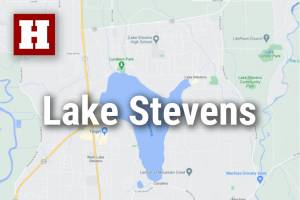2 Americans win Nobel in economics
Published 10:27 pm Monday, October 15, 2012
WASHINGTON — For years, transplant surgeons have struggled with a vexing problem: seriously ill patients desperate for new kidneys and healthy people who were willing to donate an organ but had the wrong tissue type.
Somewhere in the country, they knew, the right combinations of donors and recipients existed, but matching them often proved impossible. With most other items, freely set prices enable markets to allocate goods efficiently. But in areas such as organ transplants, societies shun the idea of a cash transaction.
On Monday, work that has provided better solutions for organ transplants, school admissions and other fields in which monetary transactions are deemed inappropriate led to a Nobel Memorial Prize in Economic Sciences for a longtime professor at the University of California, Los Angeles and an economist now at Stanford.
At a time when many economics disputes are deeply politicized, the award to Lloyd Shapley of Los Angeles and Alvin Roth, a Harvard professor recently drawn west, illustrates that scholarship in large parts of the field has helped solve real-world problems in areas far from the heated rhetoric of taxes, unemployment and government deficits.
The work spanned two academic generations.
Shapley, 89, was a World War II hero and game theorist who for a time mentored math genius John Nash while at Princeton. He first wrote his influential paper on what came to be known as matching theory in 1962 with a colleague from UC Berkeley.
Roth, who is 60 and a leading experimental economist of his generation, made use of the theories pioneered by Shapley to solve concrete problems.
The combination “has generated a flourishing field of research and improved the performance of many markets,” the Royal Swedish Academy of Sciences said Monday in announcing the last of the Nobel awards this year.
In addition to organ-matching programs, a prominent example of applying the academic research involves schools.
In 2003, Roth worked with the school system in New York City, where for years, families applying to highly desirable, selective public high schools had been asked to rank their top five choices. The schools then decided which students to admit, reject or place on waiting lists.
The system often led to frustration. If a student’s top choice was a popular one and he or she did not get in, the second-choice school might already be filled.
To try to ensure getting into one of their preferred schools, students often would skip their favorite school and instead rank their second- or third-favorite as No. 1. Each year, about 30,000 students ended up at schools they had not listed at all.
Roth helped redesign the admissions process with a new algorithm that reduced by 90 percent the number of students assigned to schools where they had expressed no preference. Under the redesign, “the students couldn’t do better than truthfully tell you what school they wanted to go to,” said Jonathan Levin, chairman of the economics department at Stanford.
What’s more, he said, the new system provides stability.
“After the assignment is done, there’s no student in the market who could look at another student and say: ‘Huh, that student is at a school where I’d like to be, and I was ahead on the priority list. I don’t understand why I didn’t get into that school,’ ” he said. “There’s no regret at the end.”
Few experts were surprised that Shapley and Roth were awarded the $1.2 million prize, which they are to share.
Harvard students had bet that Roth would win last year. In a news conference at Stanford, he said he was awakened at 3:30 a.m. by calls from the Nobel committee but couldn’t get to the phone quickly enough the first time.
Roth described economics as “being not just part of the social sciences, but part of the humanities, because it gives us a window into people’s lives at some of the biggest crossing points. When they get into schools and universities, when they get jobs, when they choose careers, when they get married — these are all matching markets.”
He spoke humbly about the many people who contributed to his research, saying their work showed “good things that economics can do generally … on real-world problems.”
Shapley, born and raised in Cambridge, Mass., was an undergraduate at Harvard when he was drafted into the military in 1943. A year later, as a sergeant in the Army Air Corps deployed in China, he received the Bronze Star for breaking the Japanese weather code, according to Sylvia Nasar’s “A Beautiful Mind,” a biography of Nash that includes a chapter on Shapley.
After earning a degree in mathematics at Harvard, Shapley spent a year at Rand Corp. and then went for further studies at Princeton, where he was seen as a star game theorist alongside rivals including Nash, the math whiz who suffered from schizophrenia and later also won a Nobel memorial economics prize.
Shapley joined UCLA in 1981 and for years had been considered a likely Nobel winner, though friends and family members grew anxious as the years passed. Nobel prizes are not given posthumously, and Shapley’s colleague on the 1962 paper, UC Berkeley mathematician David Gale, died in 2008.
Every time the Nobel winners were announced, family members expected Shapley to receive the honor, said his niece June Matthews, a physics professor at MIT.
“And every year he was passed over yet again,” she said. “Everyone in the family is delighted; there’s huge email traffic and a feeling that it was long overdue. I just hope he’s cognizant enough to appreciate it.”
Reached at his home by telephone, Shapley, who family members said was in frail health, said he was seriously considering not accepting the award because accepting it would cause him to surpass the acclaim of his father, Harlow Shapley, who had been a leading Harvard astronomer.
“I’m a mathematician, I’m not an economist,” Shapley said. “I have been making people know that I don’t want the prize, but here this happened without my buildup. If I can figure out how to do it, I’m going to duck out.”
Shapley’s son Peter, who lives in Tucson, Ariz., said the family was “just thrilled that they finally got around to recognizing him.” But, he added, he wished the honor had come 10 years ago.




